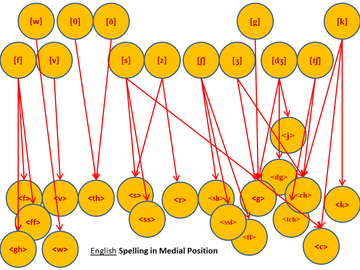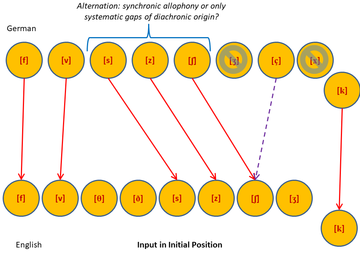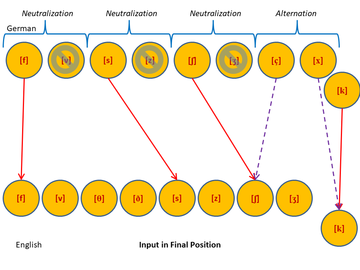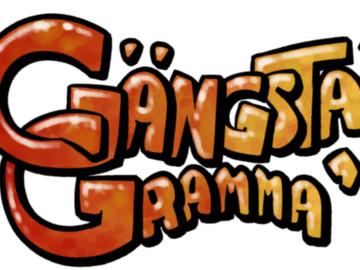

Dr. John Scott
Positions
Undergraduate Language Placement Advisor, German
Faculty of Arts, School of Languages, Linguistics, Literatures and Cultures
Assistant Professor (Teaching), German
Faculty of Arts, School of Languages, Linguistics, Literatures and Cultures
Contact information
I'm looking for...
Research partners
Our SSHRC-funded investigation of LVPT and HVPT focuses on
- L1 English-L2 German
- L1 English-L2 French-L3 German
Collaborators for other target languages or for the converse (L1 French) are welcome.
Learning opportunities
Nearly 10% of Canada claims German heritage, including Plautdietsch or 'Low German' communities. Please contact me about German letters, journals, etc. in need of translation to preserve this legacy.
Background
Educational Background
BA Linguistics (minor: Music), University of Washington, 2001
BA German Language & Literature (minor: History), University of Washington, 2001
MA Germanic Studies, Indiana University, 2008
PhD Second Language Studies (minors: Linguistics, Germanic Studies, Indiana University, 2019
Biography
Thanks to the U.S. Navy, I was born in Bermuda and lived in Rhode Island and Alaska's Aleutian Islands before spending most of my childhood in Washington's Puget Sound area, where I grew up frequently hiking and camping in the Olympic and Cascade mountains. In the summer after high school graduation, I visited Germany for the first time with a GAPP program in Tuttlingen, Baden-Württemberg. My university years were spent mostly in Seattle, except for a year studying abroad in Freiburg, Baden-Württemberg. I spent several years in Seattle after graduation, and then moved to Bloomington, Indiana for graduate school. During grad school, I spent time abroad in Reykjavik, Iceland as well as Krefeld, Nordrhein-Westfalen and Stuttgart, Baden-Württemberg. Since earning my PhD in 2019, I've lived in Calgary with my wife and two daughters, where we happily explore the prairies and the Rockies alike.
Research
Areas of Research
As a researcher of second-language (L2) phonology, I try to consider both the abstract arrangement of language sounds (general phonology) and specific problems of learnability when adults encounter new patterns in L2, such as the interactions between phonology and orthography in L2 and L3 contexts. The research we conduct in the L2+ Sound Learning Lab embraces the fundamental concerns of phonetics (study of the structure of language sounds), psycholinguistic experiment techniques, theoretical and empirical principles of category perception, and the role of position-sensitivity (i.e., where a sound occurs within a word) in acquisition and how phonological and phonotactic knowledge is represented in the brain.
More broadly, my background emphasizes phonology (synchronic and diachronic), including historical Germanic languages and Optimality Theoretic approaches, speech perception, and L2 lexical acquisition.
A rapidly growing area of applied linguistics research entails fostering early foreign language acquisition (FLA) through enhanced phonetic training, i.e., listening to carefully structured sounds to enhance one's ability to differentiate between sounds in the foreign language. This can be done with many voices (high variability) or one voice (low variability), it can be done with beginners or more advanced learners, and it can be done in fewer, intense training sessions or in a gradual trickle over weeks.
My current research project in this area (“Multi-Voice Aural Training for Adult Learners' Perception of Foreign Sounds & Spelling”) is funded by Insight Development Grant #430-2021-00157 from the Social Sciences and Humanities Research Council (SSHRC).
In addition to my central research areas, I am increasingly interested in the history of how languages (e.g., German) become standardized, the impacts of literacy on linguistic knowledge (epistemological) and on culture (positive and negative), and external factors that influence the field of language education (e.g., politics, funding, cultural attitudes about foreign languages, language purity).
Courses
| Course number | Course title | Semester |
|---|---|---|
| LANG 301.01 | Topics in Research Methods and Analysis: Signals, Symbols & Systems | Winter 2023 |
| GERM 202 | Beginning German I | Fall 2019, 2020, 2021, 2022 |
| GERM 331 | Continuing German I | Fall 2019, 2020, 2021, 2022 |
| GERM 467.02 | Topics in German Linguistics: Diachronic Linguistics | Fall 2022 |
| GERM 204 | Beginning German II | Winter 2020, 2021, 2022, 2023 |
| GERM 333 | Continuing German II | Winter 2020, 2021, 2022, 2023 |
| GERM 353 | Structure of German | Winter 2021 |
| GERM 503 | Senior Projects in Language | Winter 2020 |
Projects
Currently, my primary research project (“Multi-Voice Aural Training for Adult Learners' Perception of Foreign Sounds & Spelling”) employs a longitudinal and cross-sectional design to investigate the effects of low-variability (1 voice) and high-variability (multiple voices) phonetic training on the ability of beginning and intermediate adult learners of German to discern multiple consonants and vowels.
This research is funded by Insight Development Grant #430-2021-00157 from the Social Sciences and Humanities Research Council (SSHRC).
This project will produce Open Educational Resources (OERs) to aid teachers and students of German with the famously tricky learning challenge of German adjective endings. Two videos, Gängsta' Gramma' and Gourmet Grammar, utilize metaphorical narratives to scaffold awareness of how the notoriously complex determiner-adjective declension paradigm works. These are the first steps in the new GRAMMÆTAPHOR PROJECT, focused on the use of metaphors as a teaching tool for grammar, as well as other planned OER projects.
This project is funded by a University of Calgary Teaching and Learning Grant from the Taylor Institute for Teaching and Learning.
Publications
- Prosodic location modulates listeners’ perception of novel German sounds. Scott, J. H. G., & Darcy, I.. Laboratory Phonology, 14(1). 1-42. (2023)
- Direct mapping of acoustics to phonology: On the lexical encoding of front rounded vowels in L1 English–L2 French acquisition. Darcy, I., Dekydtspotter , L., Sprouse, R. A., Glover, J., Kaden, C., McGuire, M., & Scott, J. H. G.. Second Language Research, 28. 5-40. (2012)
- Inflectional paradigms have a base: Evidence from s-dissimilation in Southern German dialects. Hall, T. A., & Scott, J. H. G.. Morphology, 17. 151–178. (2007)
- Sound-Spelling Correspondences in FL Instruction: Same Script, Different Rules. Scott, J. H. G., Lim, R. Z. J., & Russell, C. B.. Proceedings of the 12th Pronunciation in Second Language Learning and Teaching Conference. (2022)
- Who follows the rules? Differential robustness of phonological principles. Scott, J. H. G.. Proceedings of the 10th Pronunciation in Second Language Learning and Teaching Conference, ISSN 2380-9566. 213–225. (2019)
- Review of the book The Cambridge handbook of second language acquisition. Scott, J. H. G.. Studies in Second Language Acquisition, 36. 169-171. (2014)
- German Particle-Complement Verbs in Modern Morphological and Syntactic Theory: Countering the ‘Separable-Prefix’ Misnomer. Scott, J. H. G.. University of Washington Working Papers in Linguistics, 20. 99-117. (2001)
In the News
- Archive 81 language. CBC radio broadcast. (2022)
- When Netflix needed a new constructed language or "conlang" for a cult of witches in Archive 81, they called #UCalgary professor, Dr. John Scott. Facebook (University of Calgary). (2022)
- When Netflix needed a new language for a cult of witches in Archive 81, they called John Scott. YouTube (University of Calgary). (2022)
- When Netflix needed a new constructed language or "conlang" for a cult of witches in Archive 81, they called #UCalgary professor, Dr. John Scott. Twitter (University of Calgary). (2022)
- When Netflix needed a new language for a cult of witches in Archive 81, they called John Scott. UToday (University of Calgary). (2022)
- German instructor works with students to produce open-educational resources that make learning tough languages easier. Klingt aufregend!. UToday (University of Calgary). (2021)
- Na’vi, Klingon and Newspeak: IUB doctoral student to teach class on constructed languages. Inside IU (Indiana University). (2014)
Are you the profile owner?
Login to edit.













